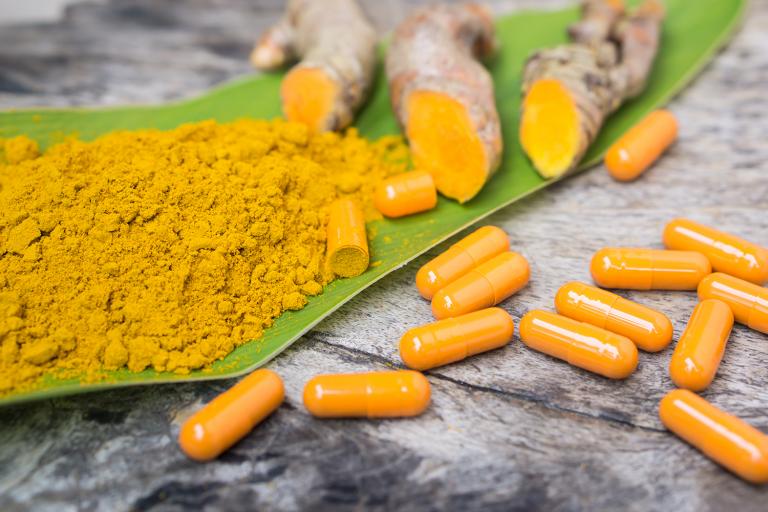The health benefits of curcumin can be significant, but its effects have been limited because it is not well absorbed in the body. Several recent breakthroughs have led to formulas with greater bioavailability. And that’s welcome news.
Benefits of Curcumin
Curcumin—a compound in turmeric that gives the spice its yellow color—has been shown to reduce inflammation in the body.
It has been used for centuries in Ayurvedic medicine and, more recently, it's been studied as a potential treatment for a wide range of disorders, including colon cancer and osteoarthritis.
It has also been used to treat joint pain, digestive issues, skin problems, and more. Curcumin is available in capsules and other forms including powders and teas.
-
Anti-Inflammatory
New formulas are being developed that may release curcumin’s anti-inflammatory properties throughout the body.
By mixing curcumin with piperine, bioavailability is greatly enhanced in the human body. In other research, scientists mixed curcumin powder with castor oil and polyethylene glycol (a substance commonly used as a laxative).
That process allowed the curcumin to be more easily absorbed in the gut so it could enter the bloodstream and tissues. In laboratory animals, the formula was shown to shut down an acute inflammatory reaction.
A recent review of 15 randomized controlled studies of more than 1,600 participants found that curcumin relieves joint pain, function, and stiffness in a manner similar to non-steroidal anti-inflammatory drugs (NSAIDs) with fewer adverse events.
Curcumin is found in many ointments for the relief of joint pain.
-
Depression Relief
Another curcumin supplement with increased bioavailability helped to relieve symptoms of depression in a group of people with major depressive disorder.
The improvements began after four weeks and continued through the end of the eight-week study. Participants took 500 milligrams (mg) of the supplement twice daily, or a placebo.
One recent meta-analysis of nine articles backed up the effectiveness of curcumin, stating it had a significant effect on depression and anxiety symptoms.
Comparison to Prozac
Another study of the same supplement found that it worked as well as the antidepressant medication fluoxetine (Prozac) in treating major depressive disorder without the major side effects.
Patients who took 1,000 mg of curcumin per day fared as well as those who took 20 mg of fluoxetine. Curcumin was also well tolerated, and the study authors concluded that it was effective and safe.
-
Brain Health
Turmeric is a relative of ginger, and it’s a popular ingredient in Indian cuisine. Tumeric intake is high in India, and the incidence of Alzheimer’s in that country is relatively low.
There is some speculation that the two things are linked.
Curcumin can cross the blood-brain barrier, and research has shown it can decrease amyloid plaque build-up in the brain that’s associated with Alzheimer’s disease.
-
Anti-Cancer Properties
Curcumin may also be useful in the treatment of cancer. Research indicates that it may help increase a protein inhibitor that is known to slow the progression of mesothelioma—a cancer of the lining of the lung that has been linked to asbestos.

